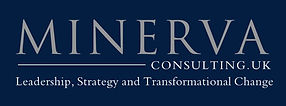
“This allows us to assess skills and behaviour that executives don’t always see but others experience at work, and it has been amazing to get this more complete view. This kind of contribution to assessment and personal development is invaluable.”
Joseph Puthussery, SVP Cisco Asia Pacific
“The assessment centre is a great tool to allow us to assess the characteristics and behaviours of our leaders. It has been an eye opener for me first as participant and then as observer.”
Tony Simonson, Participant then Observer, Cisco Australia (later a CEO)
“I learned a great deal about how to lead but I probably learned as much about myself and how I relate to other people.” JP Kenny, Participant, Cisco USA

Leadership Assessment
What do people say about leaders and leadership in your organization?
What is an Assessment Centre (AC) or Development Centre (DC)?
The underpinning premise (validated by research) is that under pressure, behaviour reverts ‘to type’ ('preferred behaviour', the behaviour a person typically displays); and the best indicator of near future behaviour is evidence of recent past behaviour.
An AC/DC is comprised of simulations of the major features of participants’ role carried out in a psychologically safe environment. Group and individual activities are designed to provide opportunities for participants to demonstrate defined aspects of leadership in action. AC/DC design provides multiple opportunities to show multiple skills and behaviours in action; and each participant is observed by multiple observers during the day. It does not matter if a task is completed successfully, it is the behaviour that we wish to observe.
Trained observers record detailed ‘behavioural evidence’ to give meaningful feedback of examples (what was said or done and how), impact (on people and task) and patterns of behaviour which may be fed into the creation of a unique personal, leadership and professional development plan. Trained observers may be drawn from our external team or internal coaches, or from past programme alumni who are continuing their development. An AC is typically a day, a DC may last 4-5 days and may include the facilitation of learning, and training and education input and application of learning to live, real issues.
What Could An Assessment Centre Look Like?


We have delivered ACs in Singapore, Hong Kong, Beijing, Mumbai, Tokyo, Sydney and across UK and USA
Why use Assessment Centres (ACs) and Development Centres (DCs)?
The costs of failing to minimise ‘leadership risk’ at any level of leadership are significant. At executive level, it is measured in £$€ multi-millions or billions. Succession planning and talent management require definition of current capability and future needs and potential, at organizational and individual levels. ACs and DCs provide objective data to assist in this.
Most organizations invest in leadership development with little or no lasting return —often a key factor is the lack of a ‘burning desire to learn’ within the individual leader (particularly in those people who are well qualified, well paid and perceive themselves to be highly successful). 360 feedback sometimes consists of non-specific generalisations, easily dismissed by recipients; and many organizations have over-dosed on 360s. It is rare that participants complete many AC/DC tasks in the most effective and efficient manner, and a degree of task failure stimulates the desire to learn. ACs/DCs, or an AC approach in a development programme creates that platform for learning. ACs for senior leaders are especially powerful in starting organization transformation and culture change programmes.
The most critical issue in AC/DC design is to clarify the aim, purpose and objectives of the AC/DC, to make these clear to ALL stakeholders —and to adhere to them. They cannot change after the AC/DC has started.
AC/DC Outcomes and Effects
For the Organization
-
Reduce risk — predictive validity
-
Organizational audit — talent pool
-
Assist decision-making (must be transparent)
-
Accelerated acceptance of change
-
Collective capability assessment — common needs identified
For HR/L&D
-
Creates momentum for learning
-
Identify common needs, start development within 24-72 hours
-
Develop and fine-tune follow-on programmes
-
Assess L&D effectiveness
-
Assist talent development and deployment
For Participants
-
Deep self–awareness and desire to develop
-
Individual development via reflection
-
Enables career conversations
-
Assessments are felt to be fair due to 'face validity'
-
Unique individual development plans
For Observers
-
AC/DC ‘Alumni’ continuity L&D
-
Develop behavioural observation, coaching and feedback skills
-
Executive ‘eye opener’ and development
-
Development through (facilitated) reflection
Ask us for a discussion about the design and delivery of ACs and DCs and for a copy of our AC/DC brochure